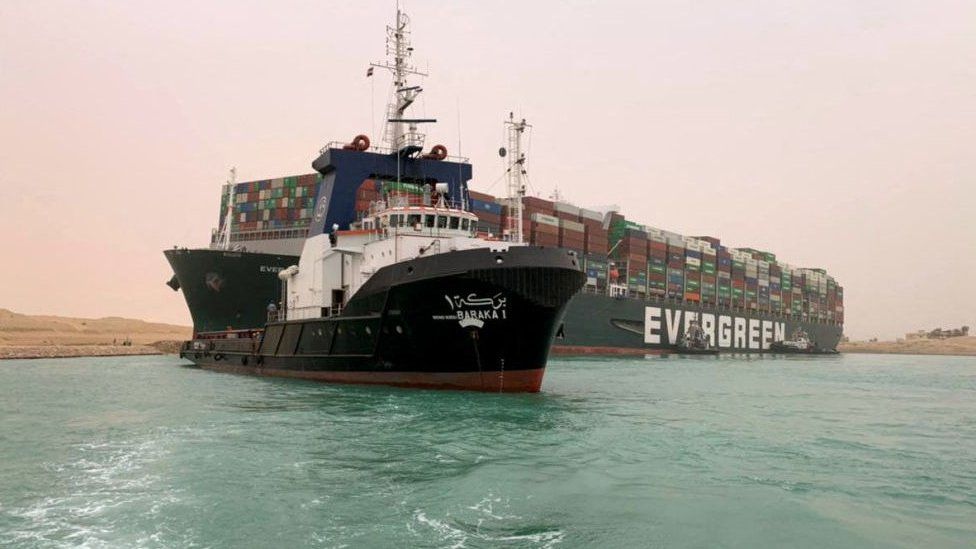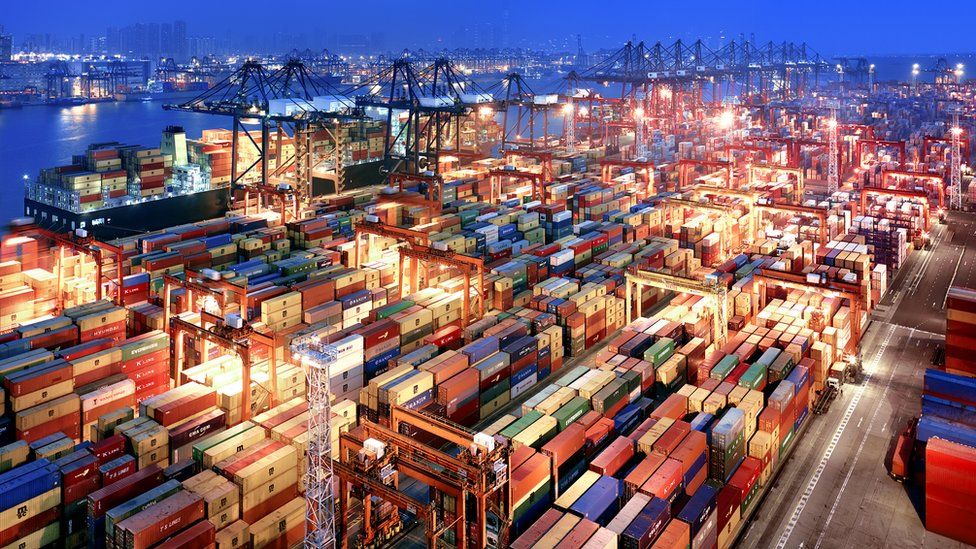Suez blockage is holding up $9.6bn of goods a day

The stranded Ever Given mega-container in the Suez Canal is holding up an estimated $9.6bn (£7bn) of goods each day, according to shipping data.
This works out at $400m an hour in trade along the waterway which is a vital passageway between east and west.
Data from shipping expert Lloyd's List values the canal's westbound traffic at roughly $5.1bn a day, and eastbound traffic at around $4.5bn a day.
Despite efforts to free the ship, it could take weeks to remove experts say.
The Ever Given, operated by the Taiwanese company Evergreen Marine, is the length of four football pitches and one of the world's biggest container vessels. Its blockage is causing huge tailbacks of other ships trying to pass through the Suez Canal.
The canal, which separates Africa from the Middle East and Asia, is one of the busiest trade routes in the world, with about 12% of total global trade moving through it.
Along with oil, the sea traffic is largely consumer products such as clothing, furniture, manufacturing components and car parts.
According to Lloyd's List tracking data there are more than 160 vessels waiting at either end of the canal. These include 41 bulk carriers and 24 crude tankers.

BIMCO, the largest of the international shipping associations representing shipowners, says the delays will only continue to grow and affect supplies.
"For each day of delay my thought is it will take two days to undo the delays," said Alan Baer, president of logistics provider OL USA.
"Right now three days creates six days of ongoing delays. I'm not sure this is a perfect formula, but it will be close," he told the BBC.
In addition to delaying thousands of containers loaded with consumer items, the stranded ship has also tied up empty containers, which are key for exports.
Contingency plans
If the delays are short, most companies will absorb the extra delay in transit times. But salvage officials said the congestion could take weeks to resolve.
"If it appears that this will go on for an undefined time period, vessels will start to go around Africa adding seven to nine days of steaming," added Mr Baer.
"Once the cargo is on the ship there is not much a shipper or consignee can do to change that individual vessel's ETA."
Some companies will be considering flying replacement merchandise for higher value products, or transporting them via trains.
Two major shipping companies, Maersk and Hapag-Lloyd, said they are looking into options to avoid the Suez Canal.

March 26, 2021 at 02:19PM
By Justin Harper
https://www.bbc.co.uk/news/business-56533250
Labels: BBC News

0 Comments:
Post a Comment
Subscribe to Post Comments [Atom]
<< Home